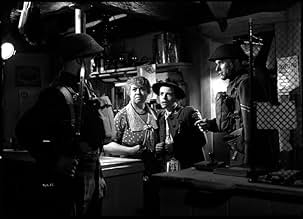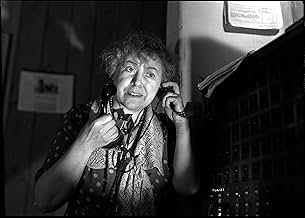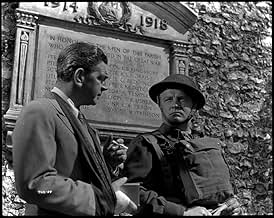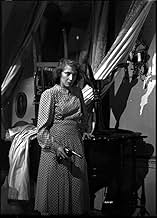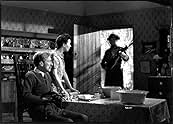Ajouter une intrigue dans votre langueAn English village is occupied by disguised German paratroopers as an advance post for a planned invasion.An English village is occupied by disguised German paratroopers as an advance post for a planned invasion.An English village is occupied by disguised German paratroopers as an advance post for a planned invasion.
- Réalisation
- Scénario
- Casting principal
- Joe Garbett
- (as Johnny Schofield)
Avis à la une
Do not make the mistake of presuming that it is an insincere propaganda yarn, considering its era. This is in fact quite an electrifying tale of survival. If so many can overlook the propaganda of obsolete films like Battleship Potemkin, there is certainly room for this picture. It stands out, owing much to its unexpected flashes of violence that are sincerely exhilarating and often frank and uncompromising in terms of the drama. It is not gritty like most modern war films. The quaintly timeless English ambiance, and the consistent theme of it maintaining its spry morale, is a clever and natural juxtaposition to the taut aggression of the conflict, which is thus more well-defined. The relatively unfamiliar cast is plainly high- quality.
At its hub, yes, it's a work of propaganda exploiting a thriller story to enrapture its WWII-era British spectators. But mind you, it is based on a story by English writer and WWII MI6 spy Graham Greene. Nevertheless, the English were righteous in that war, remaining the only European country the Germans intended to occupy but never could. This piece grows to be as riveting as any other good movie, and what's more, its unexpected violence causes it to project with particular prominence.
Like the later film, THE EAGLE HAS LANDED, this fictional movie poses the 'what if?' question - what if the much-mooted Nazi invasion of England had really taken place? The answer is limited to a single rural village in the English countryside which soon finds itself taken over by ruthless German soldiers.
What follows is expertly paced and supremely directed, with the villagers harried, hassled and murdered and eventually fighting back against their oppressors. It's still a violent and grim film, with axe murders, knifings and all manner of shootings put on the screen, although in my mind a scene involving a hand grenade marks the most shocking moment. An excellent cast, topped by THE MOST DANGEROUS GAME's Leslie Banks as a sinister collaborater, help make this a British classic.
But for the folks in the United Kingdom this was a real threat. Hitler and his legions were all along the coast of Europe ready to spring into action, threat of an invasion was real. The Germans occupied a few of the English Channel Islands which are part of the United Kingdom proper. To this day historians debate why he shifted his attentions from Great Britain to the Soviet Union. Because of that a film about German troops being brought in stealthily to the United Kingdom and assigned to take a certain village for its geographic location and relative inaccessibility, the better to defend if found out holds up even today.
That's what happens some elite German troops in the uniforms of British sappers are sent to occupy the village of Bramley End. Basil Sydney and David Farrar command the troops and they convince the townspeople at first they're real. A really stupid error on Sydney's part gives them away, so the village is occupied for real. An invasion is coming within a few days and the villagers make many attempts to get help from the outside.
The local squire is played by Leslie Banks and he's a Cliveden set type, a Nazi sympathizer. Banks has the best role in the film as he sabotages a few efforts at resistance.
I do love this film so, it shows that the people who united to save the British army to get them off the beaches at Dunkirk are still doing what they have to in order to save civilization itself. Leading the resistance is a sailor played by Frank Lawton who happens to be on leave visiting his family in Bramley's End.
Went The Day Well? is the best kind of wartime propaganda film and the people's resistance even in an event that never occurred will still inspire audiences today.
Le saviez-vous
- AnecdotesWhen the man running the pub in the village where the film was being shot discovered that he had used up his alcohol ration on the film crew, he was so distraught he committed suicide.
- GaffesThe bar of chocolate found in Major Hammond's room is inscribed with the word 'Chokolade' which Nora takes to be German. But the German for chocolate is 'Schokolade'. ('Chokolade' is Danish.)
- Citations
Kommandant Orlter, alias Major Hammond: [addressing the church's congregation] Obey my order and you will not be harmed. Any person who attempts to escape or communicate with the outside world will be shot!
[shouting even louder]
Kommandant Orlter, alias Major Hammond: Is that clear?
The Vicar: You ask me to bow down to the forces of evil here in this House of God?
Kommandant Orlter, alias Major Hammond: I ask nothing! I give you my orders!
The Vicar: I am a minister of the Christian faith. I will take no orders from those who are the enemies and oppressors of mankind!
- Crédits fousOpening credits prologue:
"Went the day well? We died and never knew, But, well or ill, Freedom, we died for you"
- ConnexionsFeatured in Forever Ealing (2002)
- Bandes originalesThere'll Always Be an England
(uncredited)
Written by Ross Parker & Hugh Charles
Heard on the radio after dinner at the Manor House
Meilleurs choix
- How long is Went the Day Well??Alimenté par Alexa
Détails
Box-office
- Montant brut aux États-Unis et au Canada
- 47 214 $US
- Week-end de sortie aux États-Unis et au Canada
- 7 849 $US
- 22 mai 2011
- Montant brut mondial
- 47 214 $US
- Durée1 heure 32 minutes
- Couleur
- Rapport de forme
- 1.37 : 1
Contribuer à cette page



